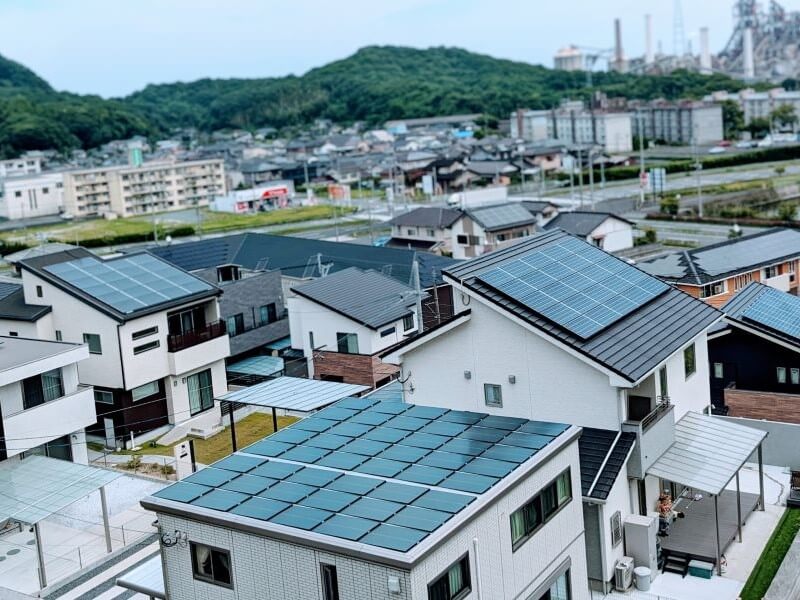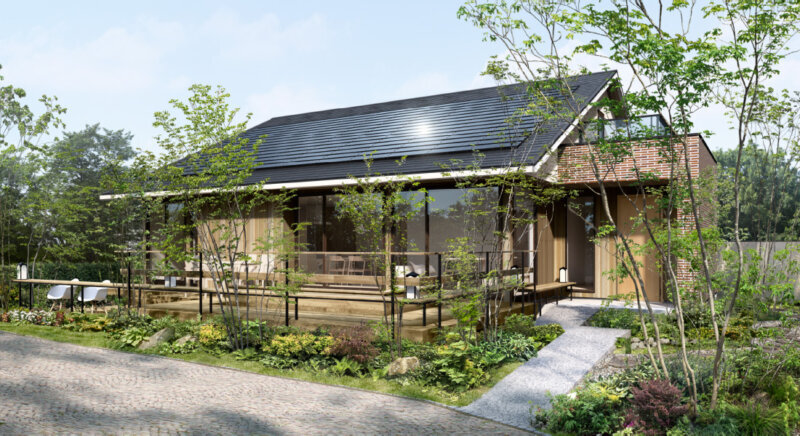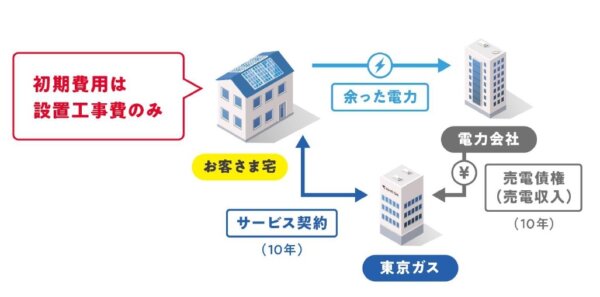In anticipation of mandatory solar panels, manufacturers are stepping up their movements

On November 18, the Tokyo Metropolitan Government announced support measures for business operators to make it mandatory to install solar panels on new buildings such as houses. A 30-billion-yen related budget proposal and an ordinance revision bill will be submitted to the regular session of the Tokyo Metropolitan Assembly in December, aiming for smooth implementation of the system. While some local governments in Japan are making the installation mandatory, major housing manufacturers are launching houses with solar panels on them one after another.
Governor Koike
“Strong support for business operators”
According to the revised ordinance proposed by the Tokyo metropolitan government, which aims to make it mandatory from April 2025, housing manufacturers are responsible for installing solar panels on detached houses. About 50 companies with an annual supply area of 20,000 square meters or more in Tokyo are targeted, and the metropolitan government is expected to account for 90% of new housing starts. Based on location conditions such as sunshine, the shape of houses, and the number of buildings to be supplied, each manufacturer sets the amount of power generation that each manufacturer should achieve. Inadequately publish the name of the manufacturer.
In order to support housing makers who are actively working on the business, the metropolitan government will include 30.1 billion yen in related expenses in the supplementary budget proposal. Of this amount, 16.3 billion yen was appropriated for projects that subsidize efforts to improve product development and construction techniques for houses equipped with solar panels. Subsidize half of the cost of developing and designing mandated housing. We will also subsidize businesses that install solar power generation equipment without initial costs, such as by leasing or selling electricity as a set. In addition, from January next year, a telephone consultation service for Tokyo residents and manufacturers will be set up, and seminars for Tokyo residents on the maintenance and management of solar panels will be held.
The metropolitan government will submit a supplementary budget bill and an ordinance revision bill that include support measures to a regular session of the metropolitan assembly in December. If the ordinance is passed, it will be enforced after a two-year publicity period, and is expected to become mandatory from April 2025. At a press conference, Gov. Yuriko Koike said, "We will strongly support businesses that are preparing for the system.
(PR)
Sumitomo Forestry
Sales of houses with negative CO2 balance

LCCM housing with standardized installation of solar panels (Source: Sumitomo Forestry)
Housing manufacturers are rushing to respond to the mandatory installation of solar panels. In April of this year, Sumitomo Forestry launched the LCCM (Life Cycle Carbon Minus) Housing, which standardizes the installation of solar panels. LCCM housing is a house that reduces carbon dioxide (CO2) emissions during construction, occupancy, and demolition, and creates renewable energy using solar power generation, etc. to create a negative CO2 balance throughout the housing life cycle. . The company's LCCM houses are made of wood, which emits less CO2 from procurement of raw materials to construction. In addition, by adopting domestic timber for the structural frame that uses renewable biomass fuel in the drying process, it is possible to reduce more CO2. . In addition, the company's unique BF (Big Frame) construction method allows for flexible adaptation to future floor plan changes, and is expected to reduce total CO2 emissions during construction, renovation, and demolition.
the initial cost
Service only for installation cost

Zuttomo Solar (Flat Plan) Mechanism (Source: Tokyo Gas)
In April of this year, Tokyo Gas and the Open House Group began offering a service called "Zuttomo Solar (Flat Plan)," which allows you to install a solar power generation system with only the initial installation cost. The cost of installing a solar power generation system varies greatly depending on the manufacturer, contractor, and installation location. According to data from the Ministry of Economy, Trade and Industry, the total installation costs, including equipment costs and construction costs, averaged ¥280,000 per kilowatt in 2021 (for new construction). Since most residential solar panels have a capacity of 3 to 5 kilowatts, the installation cost for 2021 will be 840,000 to 1,400,000 yen. Due to soaring prices of construction materials, installation costs have steadily increased since 2022, and this has become a major issue in promoting the spread of solar panels.
"Zuttomo Solar (Flat Plan)" is a service devised by Tokyo Gas. It was the first solar power generation service to be adopted for a newly built custom-built detached house by the Open House Group. Both companies' "Zuttomo Solar (Flat Plan)" is free of charge for solar power generation equipment. Solar power generation equipment can be installed in newly built detached houses only with the installation cost. Surplus electricity that is not used at home is sold to the electric power company, but during the 10-year contract period, the income obtained from the electricity sale will be transferred to Tokyo Gas. After the 10-year contract expires, the income from selling electricity will go to the homeowner.
In Japan, the city of Kawasaki is aiming for a system similar to that of the Tokyo metropolitan government, and compiled a draft in July this year. In April of this year, the Kyoto Prefectural Government enforced an ordinance requiring the installation of solar panels in new buildings with a total floor area of 300 to 2,000 square meters. The obligation to install panels is mainly for condominiums. In March of this year, Gunma Prefecture enacted an ordinance obliging installation of renewable energy facilities such as solar power generation when constructing, expanding, or renovating buildings of a certain size or larger. The targets are buildings with a total floor area of 2,000 square meters or more, such as factories and offices. The mandatory provisions will come into effect from April 2011 after a one-year notification period. In order to achieve the greenhouse gas reduction target for 2030, some local governments in Japan are making it mandatory to install solar panels.






